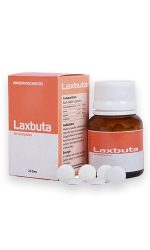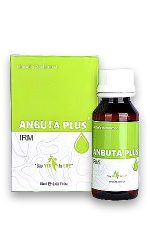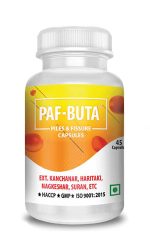In our fast-paced world filled with synthetic products and modern medicine, it’s easy to overlook the treasures hidden in the ancient sciences. Ayurveda, the traditional Indian system of medicine, is one such treasure trove that offers a holistic approach to health and well-being. At the heart of Ayurveda lie various potent ingredients, each with its unique properties and therapeutic benefits. In this blog, we will delve into the uses of some noteworthy Ayurvedic ingredients and explore their fascinating history.
Kapikacchu:
Also known as Mucuna pruriens, Kapikacchu is a legume native to India and has been used in Ayurvedic practices for centuries. Traditionally, it was employed as an aphrodisiac and as a herb for enhancing fertility. Kapikacchu is rich in L-Dopa, a precursor to dopamine, which helps support brain health and uplifts mood.
Utangan:
Utangan, scientifically known as Blepharis edulis, is a shrub found in tropical regions. Its leaves have been traditionally used in Ayurveda for their anti-inflammatory and analgesic properties. Utangan is commonly used in topical preparations to soothe joint and muscle pain.
Kokilaksah:
Kokilaksah, also known as Asteracantha longifolia, is a herbaceous plant that grows in wetlands. It has been used in Ayurvedic medicine to support urinary health and improve vitality. Kokilaksah is believed to have diuretic and aphrodisiac properties, making it beneficial for conditions such as urinary tract infections and sexual dysfunction.
Jayphal:
Jayphal, or Myristica fragrans, is the seed of the nutmeg tree and is widely used as a spice in culinary applications. In Ayurveda, Jayphal is valued for its digestive properties and is used to alleviate digestive disorders such as indigestion, bloating, and flatulence. It is also considered a natural mood enhancer.
Kali Musali:
Kali Musali, scientifically known as Curculigo orchioides, is a herbaceous plant that grows in tropical regions. It is revered in Ayurveda for its aphrodisiac and rejuvenating properties. Kali Musali is believed to enhance vitality, improve sexual function, and promote overall well-being.
Safed Musali:
Safed Musali, also known as Chlorophytum borivilianum, is a herbaceous plant native to India. It has long been used in Ayurvedic medicine as a tonic for general debility and as an aphrodisiac. Safed Musali is known to support reproductive health, boost energy levels, and enhance physical endurance.
Kurkuma:
Kurkuma, commonly known as turmeric, is a golden spice derived from the Curcuma longa plant. With its vibrant color and potent antioxidant properties, Kurkuma has gained immense popularity worldwide. In Ayurveda, Kurkuma is used to support digestion, promote healthy skin, and maintain joint health. Its active compound, curcumin, is known for its anti-inflammatory benefits.
Shuddha Shilajit:
Shuddha Shilajit, often referred to as mineral pitch, is a tar-like substance found in the Himalayas. It is formed from the decomposition of plant and microbial matter over centuries. Shuddha Shilajit is highly regarded in Ayurveda for its rejuvenating and revitalizing properties. It is believed to enhance energy, promote longevity, and support various bodily functions.
Shuddha Vishtinduka:
Shuddha Vishtinduka, also known as Strychnos nux-vomica, is a tree native to India. While the seeds of this plant are highly toxic, they have been used in Ayurveda in a purified form. Shuddha Vishtinduka is believed to possess anti-inflammatory and digestive properties. It is used in Ayurvedic formulations to support digestive health and alleviate pain.
Makardhwaja:
Makardhwaja is a unique Ayurvedic preparation that combines purified mercury (Rasa) and sulfur (Gandhak). It is believed to have aphrodisiac and immune-boosting properties. Makardhwaja is traditionally used to enhance sexual potency, improve stamina, and strengthen the immune system.
Khas Khas:
Khas Khas, also known as poppy seeds, are derived from the opium poppy plant. In Ayurveda, Khas Khas is valued for its sedative and analgesic properties. It is used to promote relaxation, alleviate pain, and support a restful sleep.
As we embark on this journey through the world of Ayurvedic ingredients, it’s important to note that while these natural remedies have been used for centuries, it is advisable to consult a qualified Ayurvedic practitioner or healthcare professional before incorporating them into your wellness routine. Ayurveda emphasizes individualized treatments, and what works for one person may not be suitable for another.
By reconnecting with the ancient wisdom of Ayurveda, we can tap into the healing potential of these remarkable ingredients. Let us embrace the holistic approach that Ayurveda offers, integrating these natural treasures into our lives for improved well-being and a deeper connection to the wisdom of our ancestors.





